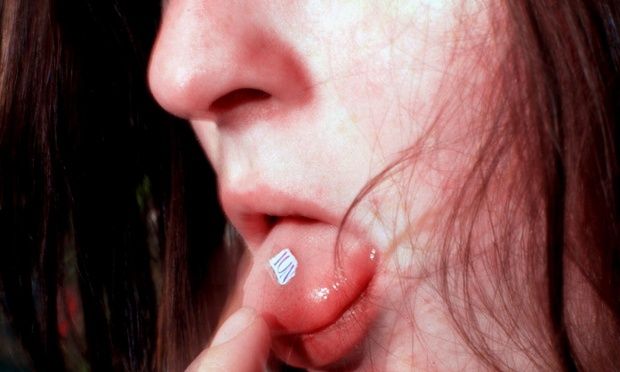
Scientists are conducting trials over the potential for the psychedelic drug LSD to be used as treatment for conditions such as depression and addiction.
Before lysergic acid diethylamide (LSD) became associated with recreational psychedelic experiences in the 1960’s, its had previously been used as an experimental medicine by doctors to treat a range of psychological problems, such as; depression, addition, schizophrenia, and obsessive compulsive disorder.
The revival of scientific research on the drug is being led by Imperial College London, who will use modern brain scanners to observe its effects on 20 volunteers.

BYPASS THE CENSORS
Sign up to get unfiltered news delivered straight to your inbox.
You can unsubscribe any time. By subscribing you agree to our Terms of Use
Belfasttelegraph.co.uk reports:
“The therapeutic potential could emerge if we see changes in the brain which would rectify abnormalities, for instance in addiction, in depression,” said Professor Nutt. “It would give a rationale for resurrecting some of the old work that LSD was used for, particularly with addiction.”
The findings will be published in the autumn, but three (abridged) personal accounts of the first people in the world to have their brains scanned while on LSD can now be published for the first time.
The volunteer users
Tom
Colours started to appear much brighter, and solid surfaces began to breathe and ripple. I was soon inside the scanner, where the electronic bleeps and white noise became hypnotically entrancing.
Time seemed irrelevant, so I’m not sure how long it was before I was gently taken out and found myself in a bright, white, starkly lit clinical suite, being asked about my experience by the researchers. The LSD was at its peak and I thought that I would struggle to string together coherent sentences.
However I soon discovered that I could express myself in what was probably quite a pseudointellectual way, talking about hearing wind chimes within the silences and how the experience was like peeling away layers of an onion, allowing myself to go deeper into the hallucinogenic experience.
My only concern leading up to this day was wondering how it would feel to have such an experience in a sterile, clinical setting without the camaraderie and shared experience of your mates, and without the visual and auditory stimuli of being in a club or lying in a field somewhere. On the contrary, this actually allowed me to focus on my experience in much more detail and to come away feeling ever so slightly more enlightened because of it.
Timothy
I experienced an almost overwhelming array of emotions, but all were experienced constantly and concurrently.
It was as if the entire “spectrum” of emotional possibilities was presented at any given instant, in exactly the same way that the spectra of possible colours were presented for visual stimuli.
There was little (if any) time to fully explore them all, which at times became confusing. Despite being very intense and unusual, the range of experiences somehow felt very familiar; because I’ve experienced them before (as a child?), or because they formed an inherent part of everyday experience (or dreams?) that I do not normally have conscious access to, but am somehow aware of.
Toby
My experience transcended the limiting duality of good trip/bad trip and asks as many questions as it answers.
I felt as if I’d entered a mansion with endless windows looking out on to multiple vistas – the mansion was the breadth and history of the human mind itself.
I was soon voyaging into an inner cosmos free from the concerns of ordinary existence. Flying blissfully over vast, rich landscapes I began to accept aspects that in normal consciousness are hard to fathom.
Then the topography changed to a luminescent, moon-like site of my entire life-story. Flying in and out of various memory pods within the terrain facilitated a kind of omniscient perspective on my own existence.
LSD catalyses material that is present in the unconscious and when I closed my eyes again images burst like flashbulbs, including a particular, private memory I’d long forgotten.
I also had the vivid recollection of a recurring childhood nightmare: the exact dreamscape from distant childhood opened up within me, and I found myself standing before a giant chessboard having to make a move which would have eternal consequences.
My ego dissolution experience was at first a blissful existential phase of apocalyptic clarity, but it soon became nightmarish.
Yet it is the loosening of an ego-fixated perspective, and the emerging Jungian shadows of the unconscious that contain the conflicts at our core. To confront these hidden maladies may be the key to our growth.
A therapeutic environment with a counsellor and a well-prepared patient could work with a single dose of LSD to address ingrained patterns and behaviours and dynamically navigate this terrain.

